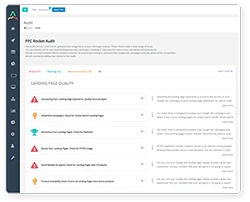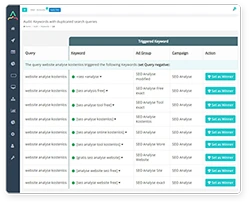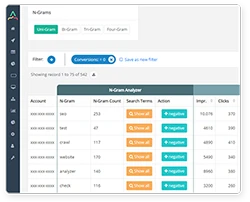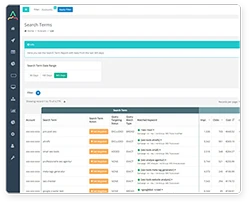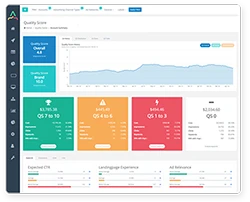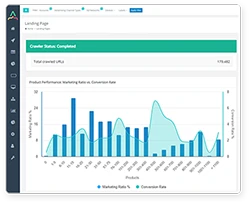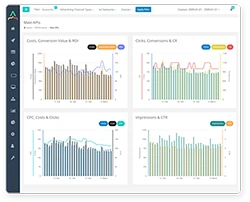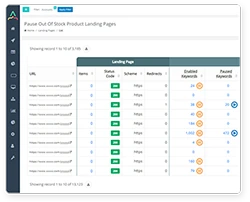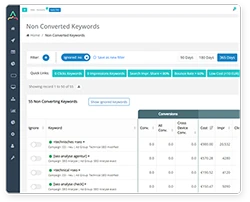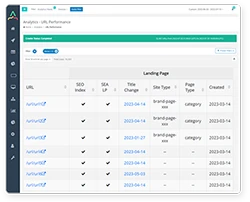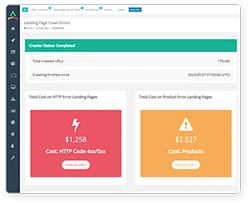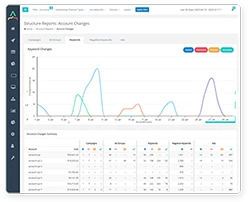Introduction
The article below is the last part of a four-part series. If you haven’t read the three preceding articles, start there before continuing below. (Part 1, Part 2, Part 3)
Keywords are the foundation of a successful digital marketing campaign. They help search engines understand your content and make it easier for users to find what they’re looking for. However, not all keywords are created equal. In this article, we’ll explore the concepts of keyword relevance, reach, and match types, and how they can impact the success of your PPC campaigns.
Start Creating Better Google Ads
See how PPC Rocket can help you achieve best practices when it comes to Google Ads. Optimize your ad spend with all the tools you need to measure, track, and improve performance.
The Importance of Keyword Relevance
Keyword relevance refers to the relationship between the keywords you choose and the content on your website. It’s important to choose keywords that accurately describe what your business does, as this will help attract the right audience to your site. For example, if you sell organic skincare products, you’ll want to choose keywords that reflect this, such as “organic skincare” or “natural skincare products.”
Choosing irrelevant keywords can result in wasted ad spend and a low click-through rate (CTR). If your ads are appearing for keywords that are not relevant to your business, users are unlikely to click on them. Additionally, Google uses a metric called “quality score” to evaluate the relevance of your keywords. The higher your quality score, the lower your cost-per-click (CPC) will be, and the more likely your ads are to appear in top positions.
Understanding Keyword Reach
Keyword reach refers to the number of people who are searching for your chosen keywords. Choosing keywords with a high search volume is important, as this will help ensure that a large audience sees your ads. However, it’s also important to consider the competition for those keywords. Choosing highly competitive keywords can result in a high CPC and low ad position.
You can use Google’s Keyword Planner tool to determine the reach of your keywords. This tool will show you the search volume and competition for each keyword and provide suggestions for related keywords that may have higher or lower reach.
The Different Types of Keyword Match Types
Keyword match types are used to determine when your ads will appear in response to a user’s search query. There are four different match types:
- Exact match: Your ad will only appear when a user searches for the exact keyword you’ve chosen./li>
- Phrase match: Your ad will appear when a user searches for a phrase that includes your keyword, in the order you’ve specified.
- Broad match: Your ad will appear when a user searches for any variation of your keyword, including synonyms and related terms.
Using Exact Match Keywords
Exact match keywords are the most targeted of the match types. They’re ideal for businesses that want to ensure their ads only appear for the most relevant searches. However, because they’re so targeted, they may not have as high of a reach as other match types.
To use exact match keywords, simply put brackets around the keyword you want to target. For example, [organic skincare] would only appear for searches that include that exact phrase.
The Benefits of Phrase Match Keywords
Phrase match keywords are a bit more flexible than exact match keywords, as they allow for some variation in the search query. They’re ideal for businesses that want to target specific phrases, but also want to capture related searches.
To use phrase match keywords, put quotation marks around the phrase you want to target. For example, “organic skincare” would appear for searches that include that phrase and searches that include additional words before or after the phrase.
Broad Match Keywords and Their Risks
Broad match keywords are the most flexible of the match types, as they allow your ad to appear for a wide range of search queries. They’re ideal for businesses that want to cast a wide net and capture a large audience. However, because they’re so broad, they can also result in wasted ad spend and low-quality clicks.
To use broad match keywords, simply type in the keyword without any punctuation. For example, organic skincare would appear for searches that include variations of that phrase, such as “natural skincare” or “organic beauty products.”
Conclusion
Choosing the right keywords and match types is crucial for the success of your PPC campaigns. By focusing on keyword relevance, reach, and match types, you can ensure that your ads are appearing for the right audience, at the right time. Remember, it’s important to constantly monitor and adjust your campaigns, to ensure that you’re getting the most out of your ad spend.
Are you ready to take your Google Ad campaign to the next level? Look no further than PPC Rocket, the ultimate SaaS tool for optimising your ad spend and boosting your ROI. With expert insights and data-driven recommendations, PPC Rocket will help you get the most out of your Google Ad campaign. Try it today and see the results for yourself!
Start Creating Better Google Ads
See how PPC Rocket can help you achieve best practices when it comes to Google Ads. Optimize your ad spend with all the tools you need to measure, track, and improve performance.
Share with
Articles
Discover New PPC Marketing Tips, Strategies, and Insights
DECEMBER 20, 2022

Google Ads Campaign Types
In this article, we will explain the difference between the various campaign types, which types of businesses they are most suited for, and the pros and cons of each.
APRIL 03, 2023

A Comprehensive Guide to Google Ads Campaign Management - Part 1
Discover how to create successful Google Ads campaigns with our comprehensive guide. Learn the basics, utilise targeting options, and drive conversions. Part 2 coming soon. Try PPC Rocket for a hassle-free experience.
JULY 22, 2023

Stepping Up Your e-Commerce Game with Advanced Google Ads Targeting Techniques
Elevate your e-Commerce advertising efforts with advanced Google Ads targeting techniques. Explore audience targeting, location and device targeting, and keyword optimisation strategies, all empowered by PPC Rocket's expert insights and ad management tools.
APRIL 15, 2023

The Complete Guide to Google Ads Scripts: Everything to Know
This guide provides a comprehensive overview of creating a successful SEA strategy, including on-page and off-page optimization, keyword research, content creation, and more. By following these tips and techniques, you can improve your website's ranking, drive traffic to your site, and achieve your SEA goals.
4.7 Star (104 reviews)
Customer rating
Start Creating Better Google Ads
See how PPC Rocket can help you achieve best practices when it comes to Google Ads. Optimize your ad spend with all the tools you need to measure, track, and improve performance.
Try PPC Rocket for Free
